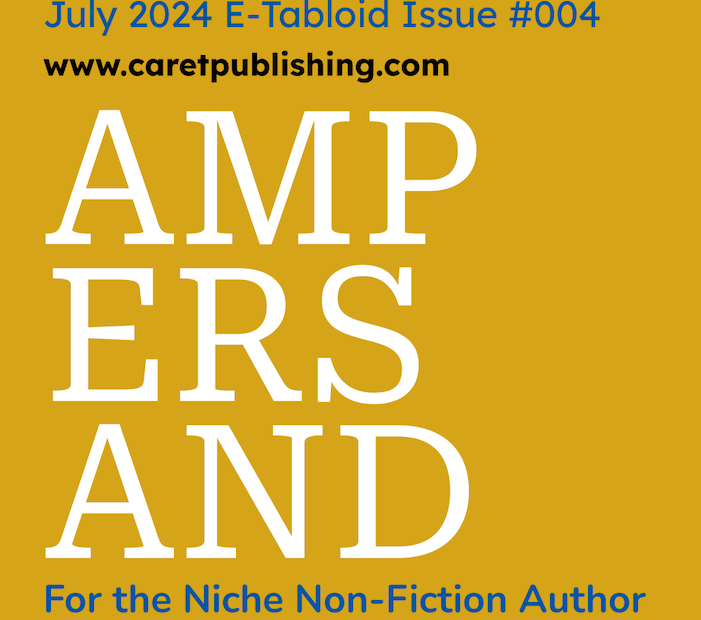Submitting your work to a publisher is a big milestone in any writer’s book journey. While it may be tumultuous and nerve-wracking, it has always been people’s dream come true and sometimes there are some pitfalls to watch out for. There are several mistakes that authors often commit when submitting their manuscripts or book proposals, which may have some undesirable effects on the image they create in the minds of those who assess their work. Here are some of the most common errors writers commit and tricks on how you can avoid them.
AMPERSAND E-TABLOID ISSUE #004
1. Ignoring Submission Guidelines
Ignoring or not carefully studying the submission guidelines, from formatting to length, and the type of material they accept, is among the most common mistakes. For example, every publisher outlines how a text should look like, the scope, as well as field of specialization. Failure to abide by them will almost always result in immediate rejection by the publisher because it means that perhaps authors have not taken the time to learn their requirements and do not have the discipline to follow processes.
How to Avoid: It might take longer but carefully reading and following the submission guidelines provided on the publisher’s website will be of big help in the success of your book. Tailor your submission to meet these exact requirements. This attention to detail demonstrates professionalism and respect for the publisher’s time. Additionally, if you find out that the publisher you’ve originally considered turns out to not exactly align with your book topic, then you can immediately move on to your next publisher, saving you more effort and time.
2. Sending a Not-Quite-Ready Manuscript or PROPOSAL
Another common error from writers submitting their work to a publisher is turning in a manuscript or proposal that isn’t quite fully polished. You’ll feel it as a writer if you’ve ever sent out work that’s “not quite there yet.” It can be overlooking even minor issues like grammatical errors, typos, and inconsistencies in the plot or not-fully-formed characters. Publishers receive a high volume of submissions, and a manuscript filled with errors can quickly be turned down.
How to Avoid: Edit and proofread your manuscript multiple times before submission. If you can afford it, hire a professional editor or ask trusted peers or friends to review your work and give constructive comments. Fresh eyes can catch mistakes you might have overlooked. And even after you’ve had someone else check your work, have a few more final passes at it yourself for good measure and then submit. Many experienced writers also recommend stepping far away from the work for a couple of weeks to return to it with fresh, editing-ready eyes.
3. Approaching the Wrong Publisher
We’ve received quite several submissions as well. Many writers make the error of submitting their work to publishers who are not really on the lookout for their type of manuscript or idea. This mass-submission approach rarely produces positive results and can lead to unnecessary rejections and wasted efforts.
How to Avoid: Research your target publishers thoroughly to make sure you’re an ideal match. If available, look up their editors. Check at their catalog of published books to see if your manuscript aligns with their interests and expertise. Personalize your submission to reflect why you believe your work is a good match for their list. Publishers appreciate the attention to detail. It suggests that you have taken the time to double down on your potential as an author.

4. Writing Poor Query Letters
Think of the query letter as your best and only chance to make heads turn. Now imagine if you haven’t taken the time to craft it properly. Common issues include having generic first lines, lacking enthusiasm, overpromising, being unable to highlight anything special about your work, and failing to fully convey what your manuscript is about and why it’s compelling.
How to Avoid: Do your homework on what makes a query letter great and shoot for a compelling and personalized submission. Highlight what makes your manuscript unique and why you are the best person to write it. Detail what will be the biggest edge of your work, while being professional and engaging. There are several ways to write a query letter available online including this one.
5. Lacking Professionalism
Often overlooked, professionalism is an aspect that is often a big determining factor that makes or breaks a potential work relationship between publisher and writer. As the writer, it extends beyond the quality of your writing to how you present yourself in correspondence. Impatience, the use of overly casual language, or downright rudeness can negatively impact how publishers perceive you.
How to Avoid: Always be professional in all your communications. Stay polite, patient, and respectful, even if you face rejection. Publishing is a relatively small industry, editors, publishers, and literary agents touch base with one another regularly and word can go around of you if left an impression. Make sure it’s always a positive one.
6. Failing to Follow Up
Some writers get worried they might come across as overenthusiastic but following up on your submission is commonplace, especially if it’s within the time frame that the publisher estimates they’ll be able to get back to you on your work. As mentioned, there is a fine line between following up promptly and being overly aggressive about it, so take note of the time it takes for the publisher to conduct the review. Publishers receive tons of submissions and may need a reminder about yours.
How to Avoid: Allow publishers enough time to review your submission, typically around two to three months. Sometimes it takes larger companies as long as six months to a year to get around to responding, too. If you still haven’t received any update after this period, it’s quite acceptable to give them a polite follow-up email to check on the status of your submission.
7. Being Unprepared for Rejection
Rejection is a natural part of the submission process. Connected to unprofessionalism, not being able to take rejections well, and there will be a number of them, can ruin a writer’s career before it even begins.
How to Avoid: Rejection is not a reflection of your worth as a writer. Although writing could be a personal journey for you, understand that going through a rejection of your work is not a personal attack. Use any feedback that has been provided to help you improve your manuscript, keep editing, and don’t stop submitting to other publishers. Persistence and resilience are key in the publishing industry.

8. Overestimating Your Market Knowledge
Assuming you know the market better than the publishers can be a mistake. Overly bold claims about your book’s potential to become a bestseller or comparisons to major successful works might come across as naïve or arrogant.
How to Avoid: Be humble and realistic in your approach. Let your work speak for itself. Instead of making grand claims, provide solid, thoughtful comparisons and explain why your book fills a niche or gap in the market.
9. Neglecting to Build a Platform
In today’s publishing landscape, having a platform or an existing audience can significantly enhance your appeal to publishers. Writers who have no online presence and have no intention of marketing themselves or no means to promote their work may be at a great disadvantage over those who have this covered. Even if you have the best idea or manuscript, sometimes it boils down to having a platform.
How to Avoid: Start building your author platform early. If you don’t have an email list, create one. It can start with your family and friends. Maximize your social media, blogs, or author websites to create a following. Engage with your potential readers because publishers want to see that you’re no slacker in marketing your work. Especially in the first few months, reaching out to your immediate connections will help create the buzz you need to justify sustained marketing efforts.
Conclusion
It is important to recognize that submitting your work to a publisher marks a crucial moment in one’s writing journey. To avoid such mistakes will not only negate all forms of disappointments but equally increase the chances of your work standing out among the rest. Be thoughtful, meticulous, and flexible about the process. That way you are more ready to effectively handle the nuances and come closer to what you wish in publication after spending time on it.
Caret Publishing is a small press and imprint of niche non-fiction books. Feel free to send us a manuscript or book proposal if you have an idea for a book. Go to Submit Your Work for more details.
